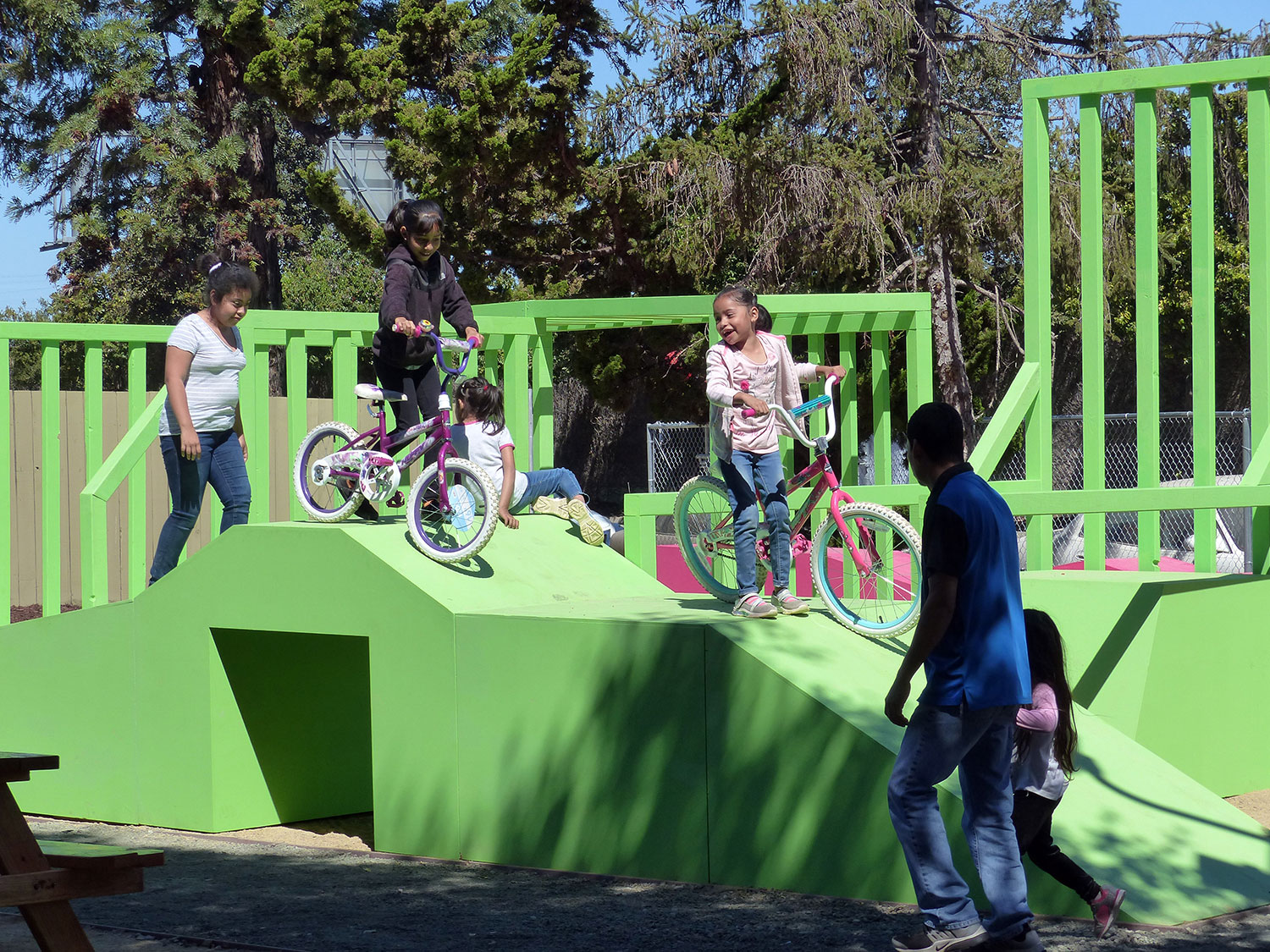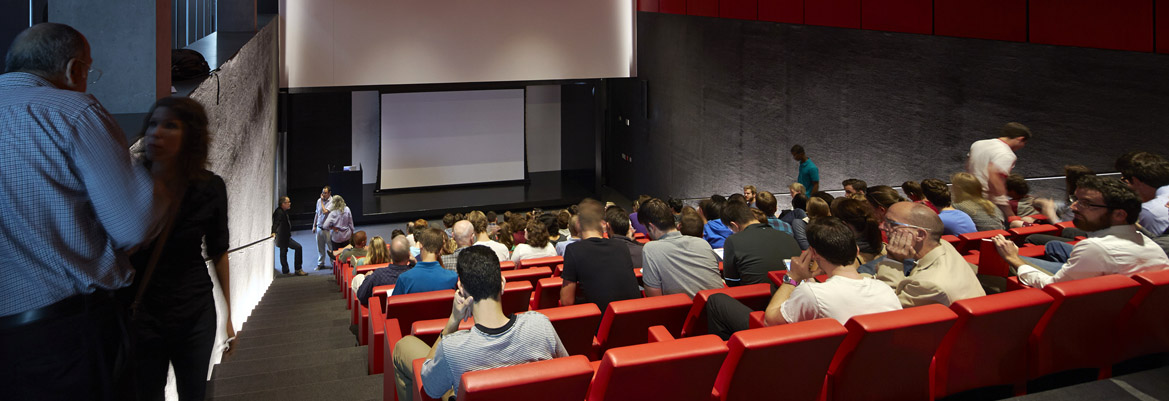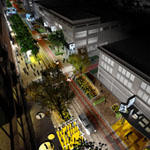
Studio O worked with the residents of Woodland Park apartments in East Palo Alto, California, to identify how to improve their quality of life. (Photo Courtesy of Liz Ogbu)
Register for virtual lecture series:
All lectures start at 4 p.m. Central Time and will be presented virtually. To register for this lecture and the entire lecture series, complete this registration form on Zoom. You will be sent a confirmation email upon registration.
You must have a Zoom account (which is free) to register for this lecture series.
Liz Ogbu is the founder and principal of Studio O, a multidisciplinary design consultancy that works at the intersection of racial and spatial justice. She is a designer, urbanist and spatial justice activist, as well as a global expert on engaging and transforming unjust urban environments.
Ogbu will present the virtual lecture “Design/ing in the Apocalypse” at 4 p.m. Monday, Nov. 1, as part of the fall lecture series in the Fay Jones School of Architecture and Design.
The Fay Jones School’s fall lecture series is presented in collaboration with Places Journal, an internationally respected online journal of architecture, landscape architecture and urbanism, and the University of Arkansas Division of Diversity, Equity and Inclusion.
Registration for the entire lecture series is available on Zoom.
In her lecture, “Design/ing in the Apocalypse,” she will share how the word “apocalypse” comes from the ancient Greek word that meant “revelation” or “unveiling.” The year 2020 brought a whole new level of clarity, with the pandemic and the murders of George Floyd and Breonna Taylor among too many others, and it lay bare to a greater number of people the landscape of injustice and oppression that has long been in existence.
As 2021 has progressed, it’s been shown that a new year, a new vaccine and a new president do not mean that all wounds automatically healed. If anything, this year has hammered home the endemic nature of the conditions people face, the unprocessed grief held by individuals and the collective, and the need to focus on repair and healing instead of a “return to normal.”
For designers, these concepts can feel unwieldy and disconnected from what they do. However, as the ones who shape the physical environment in which everyone lives, design/ers have too often been complicit in the harm. Ogbu will explore what it means to wrestle with that and discuss what it could mean to negotiate issues of race and space in service of repair and healing.
From designing shelters for immigrant day laborers in the United States to a water and health social enterprise for low-income Kenyans, Ogbu has a long history of working with communities in need to leverage the power of design to catalyze community healing and foster environments that support people’s capacity to thrive.
In addition to her practice, Ogbu has held academic appointments at several institutions, including the Hasso Plattner Institute of Design at Stanford University (also known as d.school), University of Virginia and the University of California, Berkeley.
She also previously served as the Droga Architect in Residence for the Australian Institute of Architects, investigating urban marginalized populations and community development practices in the country.
Ogbu has written for and been profiled in publications such as The New York Times, Bloomberg (formerly The Atlantic) CityLab and the Journal of Urban Design. Her projects have been featured in museum exhibitions and received numerous design awards globally.
Her honors include IDEO.org Global Fellow, TEDWomen Speaker, Aspen Ideas Scholar, Senior Fellow of the Design Futures Council and one of Public Interest Design’s Top 100.
Ogbu received architecture degrees from Wellesley College and Harvard University.
The school is pursuing continuing education credits for this lecture through the American Institute of Architects.
This virtual lecture is open to the public. Admission is free, with limited seating. To register for the entire online lecture series, complete this form on Zoom.
For more information, contact 479-575-4704.
Watch the recorded lecture online.



